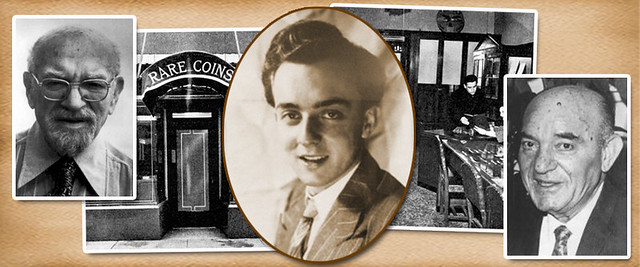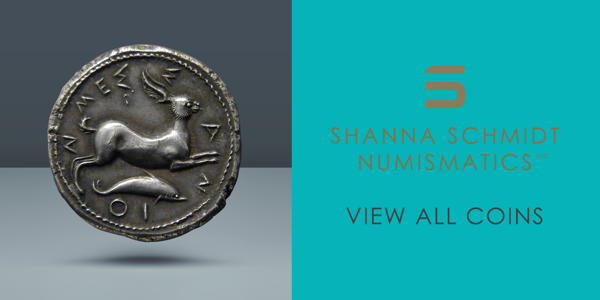
PREV ARTICLE
NEXT ARTICLE
FULL ISSUE
HARVEY STACK'S NUMISMATIC FAMILY, PART 60The latest article in Harvey Stack's blog series is about the Hobby Protection Act of 1973. Thanks, Harvey! -Editor  The year 1973 saw a number of initiatives in numismatics that brought about changes in the hobby. At Stack's these and other events made it a very active and important year for us. My son Lawrence R. Stack (Larry) joined the firm after his graduation from university. As a representative of Stack's, I worked with the Congress on the Hobby Protection Act and with the American Numismatic Association (ANA) to revamp the numismatic grading system to include numerical grading. As always, Stack's also had the privilege of offering at public auction important old time collections. Inflation continued. Money became more available, but unfortunately lost some of its purchasing power. Markets, including the stock market, the commodities markets, and real estate markets showed signs that certain collectibles were coming into demand, and that people wanted to have alternate means of investment – a "store of value." Meanwhile, professionals and collectors worked toward changes to make the hobby of numismatics more pleasurable, with less abuse by counterfeiters and promoters who tempted many to make bad investments. 1973 was a year when the importance and reliability of the professional numismatist was discussed and acted upon. It was a year where many worked to make the hobby more acceptable to old as well new collectors. New collectors of course needed guidance, but older more seasoned collectors could also use our assistance to grow with the hobby and to navigate the changes that were taking place. Congress was receiving complaints about the lack of regulation, and the counterfeits that were made in the United States as well as many places worldwide. This affected not just numismatics but other areas of collectibles as well. They convened a hearing to review what the various industries would suggest. I was asked to be the representative for the coin hobby, this resulting from my earlier encounter with the Treasury regarding the temporary restriction of gold coin imports from abroad. I presented my case, which included advising Congress that counterfeit U.S. and world coins were flooding the country and we needed a way to regulate the inflow. The Custom House, I learned, was ill-equipped to identify and confiscate false coins. The law, which was finally enacted, said that all coins entering our markets that are false and counterfeit, had to be stamped, in letters that were easy to read, the word COPY! The same problems, in different ways affected other collectibles, from ancient world items, to art, lithographs, porcelain china, jewelry, postage stamps and more. Buyers were having trouble with questionable items, and had immense difficulty getting their money back when they challenged them. Federal authorities had only limited ability to help – the Secret Service was involved with problems dealing with monetary items – but some kind of law enforcement was required. The Hobby Protection Act was passed in 1973, turning much of the authority over to the Federal Trade Commission (FTC) to propose a set of regulations and to enforce rules. However, the FTC was not able to administer the law, for they were lacking in qualified experts to help write and enforce the law. So while the law existed, as late as 2014 few if any regulations had been administered and enforced. To this day, other than the laws about counterfeiting (which have been on the books since virtually the time we became a nation), collectibles have not be regulated as the law provides. And while the gold import regulations of 1961 might have had some positive outcomes, they were arbitrary and capricious (as was determined in court) and the regulators were unable to administer the program effectively so they were terminated in 1967. All of us who participated in the hearings knew that the problems existed, but also knew that apprehending the culprits was difficult. Few coins were stamped, thousands came to market, and the Secret Service has not been able to efficiently administer any regulation so the market had (and still has) many false, copies and counterfeit coins to deal with. But we keep trying! To read the complete article, see:
To read the complete article, see:
 Wayne Homren, Editor The Numismatic Bibliomania Society is a non-profit organization promoting numismatic literature. See our web site at coinbooks.org. To submit items for publication in The E-Sylum, write to the Editor at this address: whomren@gmail.com To subscribe go to: https://my.binhost.com/lists/listinfo/esylum All Rights Reserved. NBS Home Page Contact the NBS webmaster 
|